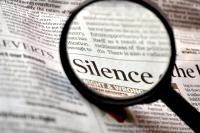There are many wonderful writing courses offered to those in the professional writing minor at UC Davis. Check out some of the seasonal offerings below, which satisfy the Group B and Group C requirements for professional writing students!
UWP 112A: Introduction to Professional Editing

UWP 112A acts as an introductory course to the practices and principles of editing, with an emphasis on editing in professional and organizational contexts. Students will focus on developing skills in areas such as comprehensive editing, copymarking, copyediting, proofreading, and illustration editing. Additionally, students will gain skills in the creation and utilization of style sheets and style guides. Collaboration with team members and writers on projects allows students to implement useful editing techniques in their own writing, as well as prepare for future employment.
UWP/ENL/LIN 106: English Grammar
This course alternates across the English, linguistics, and professional writing departments on a quarterly basis. By focusing on English grammar through the lens of contemporary linguistic theories, students will analyze the topics and developments of dialects, inflectional morphology, and information structure within sentences and paragraphs. Students will correlate these topics to the broader analysis of English grammar and syntax, as found in literature and writing. This course is not only for students who seek a career in editing or teaching, but is open to those who seek to improve their writing skills and abilities with the foundations of grammar.
UWP 110: Communicating User Experience
Discover the power of communication in shaping digital experiences. This course equips you with the skills to uncover user needs and effectively convey those insights to drive better design decisions. You will learn to conduct effective user interviews and usability tests; translate user needs into actionable insights; create compelling personas and journey maps; communicate research findings to design teams; and craft clear, user-centered content. Join us to develop in-demand skills that will set you apart in the rapidly growing field of user experience design and research.
UWP 121H: History of Scientific Writing
Through the historical analysis of scientific writing, students will study the various elements of the genre and what makes it notable and necessary within the science community: English as the international language of science, origins of the genre in the Anglo-European tradition, and the impact of bibliometrics, among other topics. An analysis of the social and cultural contexts surrounding scientific writing will allow students to witness its present evolution from public discussions to expert-driven debates, as well as discuss the factors that influence the future of the genre.
UWP 111A: Special Topics in Journalism
UWP 111B: Investigative Journalism

UWP 111B focuses on the systematic and thorough investigation of student-chosen topics, forming the criterion of investigative journalism. Students will use investigative research skills and methodology (interviews, analyzing public records) to write stories pertaining to the public interest, culminating in multiple research projects throughout the course. Notable features of investigative journalism that students will actively utilize and develop include various narrative techniques, summarization, evaluation of reporting accuracy, and assessment of the legal and ethical considerations behind sources.
UWP 111C: Science Journalism

UWP 111C focuses on strategies for “writing science” for feature articles in newspapers and magazines, as well as for digital media outlets. In particular, students will practice the journalistic techniques of identifying and developing ideas for articles, finding the story within the facts, and developing effective angles and leads. By combining professional writing with scientific topics, students will develop skills in reading and synthesizing scientific articles, in addition to gaining a fundamental understanding of the professional science writing career and the scientific writing market.
UWP 115: Writing Center Research, Theory, and Practice for Peer Writing Tutors

This course is uniquely designed for students who are interested in becoming peer writing tutors and educators, with an emphasis on the theories, practices, and research done by writing centers. Students shall analyze the theoretical approaches and practices (e.g. the role of feedback) conducted by writing centers (such as the AATC Writing Support Center) to design an instructional framework as a guide for future writing center practices.
UWP 120: Rhetorical Approaches to Scientific and Technological Issues

Students in UWP 120 will focus on the application of rhetorical theories in relation to current scientific and technological issues. Combining scientific topics with philosophical approaches, media literacy, and academic writing, students will examine philosophical concepts such as epistemology, incommensurability, and demarcation in order to understand and conceptualize relevant scientific issues. Other topic areas include understanding the implementation of “scientific voice” in writing and theorizing implications for risk communication.
